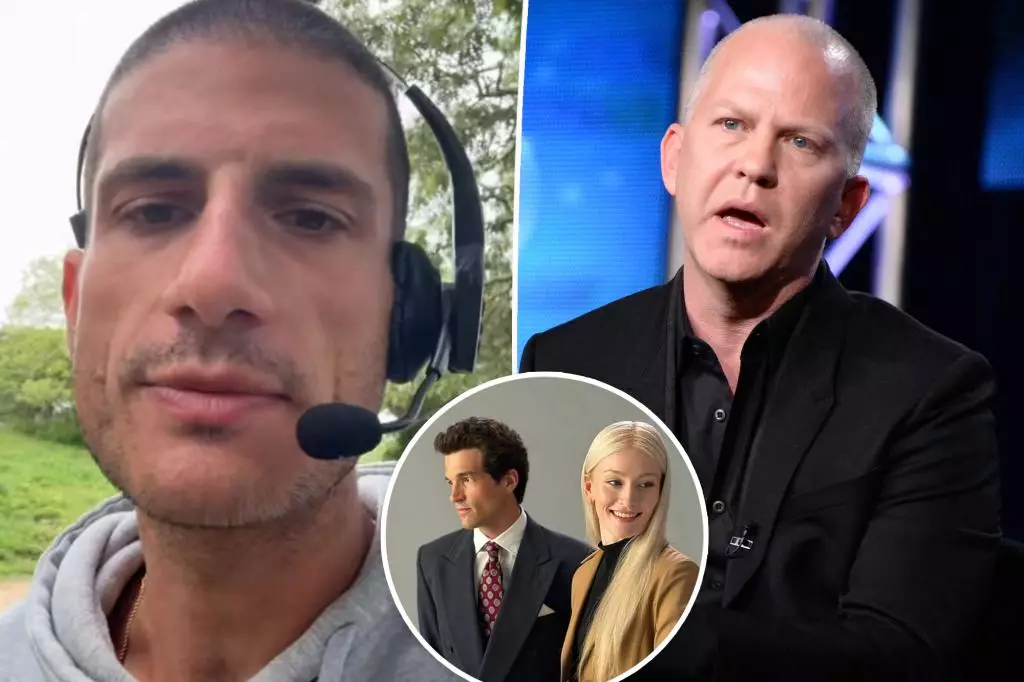In the realm of American history and celebrity culture, few families evoke as much fascination and reverence as the Kennedys. Their enduring legacy is often turned into a narrative to be commercialized, commodified, and exploited. However, the recent clash between Jack Schlossberg, the grandson of JFK, and Ryan Murphy highlights an increasingly urgent debate: Should the legacy of individual families be used as a commodity without regard to their personal wishes and ethical considerations? The controversy underscores a vital question—does the Hollywood machine have a moral obligation not only to honor but also to respect the families and causes associated with iconic figures?
Murphy’s insinuation that Schlossberg harbored little memory of JFK Jr. was not only misguided but also dismissive of the profound personal connection that family members maintain to their loved ones’ legacies. Schlossberg’s candid response shows that history is not just book knowledge but a living, breathing part of personal identity. When creators profit off this history without engaging or consulting the families, they risk eroding trust and perpetuating a sanitized, sometimes distorted version of reality. This situation exemplifies how the commercial entertainment industry often struggles to balance storytelling with integrity, especially when the stories involve real-life tragedy and profound personal histories.
The Ethical Challenge of Profit and Preservation
The core issue lies in the ethics of profit-making from a family’s tragedy and legacy. Murphy’s remarks seem to dismiss the importance of family memory, which is a dangerous oversight. When stories surrounding the Kennedys—particularly JFK Jr. and Carolyn Bessette—are turned into sensationalized television dramas, the human element can easily be lost. The execution of such narratives often skews towards glamour and intrigue rather than respect and accuracy. This approach has the potential to commodify grief, turning personal tragedies into entertainment and, consequently, commercial products.
Jack Schlossberg’s pointed critique about Murphy’s financial gains off the Kennedy legacy hits at a fundamental concern: the disproportionate power that Hollywood and media companies wield when they capitalize on stories that don’t belong solely to them. Money is a driving force, but it should not be the sole arbiter in shaping history or storytelling. Ethical storytelling must involve transparency, consent, and a genuine effort to honor the realities of those involved. Otherwise, creators risk perpetuating stereotypes and superficial narratives that do not serve the memory of those who suffered or served their country with honor.
The Personal Dimension and the Responsibility of Memory
Schlossberg’s personal recounting of moments with JFK Jr. adds an invaluable dimension to this debate. These memories—picking him up in a Pontiac, calling him “Jackolatern,” and being present at key moments—are invaluable fragments of history that can’t be fully understood or appreciated without context. His narrative underscores how family members keep these memories alive, not just as a sense of nostalgia but as a commitment to legacy.
In contrast, the portrayal of Carolyn Bessette by an actress with a different hair color to fulfill an aesthetic judgment reveals a superficial engagement with history. It demonstrates a tendency to prioritize visual appeal over depth and authenticity. Such choices undermine genuine storytelling and tend to trivialize complex personal histories for the sake of spectacle.
Murphy’s dismissive comment about Schlossberg’s lack of remembrance appears reductive and dismissive of the emotional nuances that define family legacies. It exposes an underlying assumption that only shared vivid memories justify engagement with history, ignoring the fact that for family members, legacy is often maintained through stories, remembrance, and emotional bonds—elements that cannot be reduced to instant recall.
The Broader Implications for Cultural Memory
The Kennedys represent a larger cultural phenomenon about how society venerates certain families and figures. The tendency to mythologize and monetize their stories is inevitable but fraught with ethical pitfalls. When media giants like Murphy profit from these narratives, they bear a responsibility—not only to entertain but to do so with integrity. Exploiting tragedy or family history without proper acknowledgment or consent risks turning human stories into commodities devoid of their original dignity.
This debate is also a reflection of a broader societal conversation about authenticity, respect for personal histories, and the moral limits of commercial storytelling. The answer isn’t to shield stories from public view but to approach them with humility, collaboration, and respect for those who are the custodians of the stories—the family members and descendants who possess a personal stake in how their legacies are portrayed.
Ultimately, stories rooted in real lives and tragedies demand more than entertainment—they demand empathy, accountability, and a conscious effort to preserve the dignity of those involved. When the lines between storytelling and exploitation blur, the cultural fabric risks fraying, leaving behind a landscape of distorted histories and unearned profits. It is high time that creators and consumers alike recognize that respecting legacies is not a limitation but a moral imperative—one that honors both the past and the integrity of storytelling itself.

